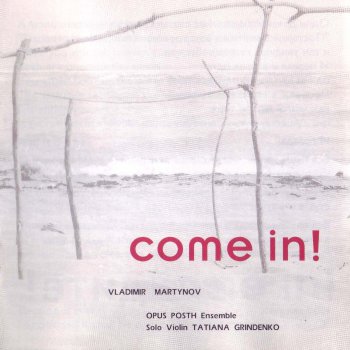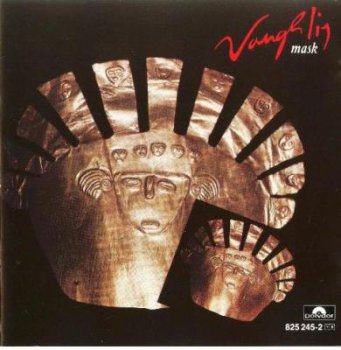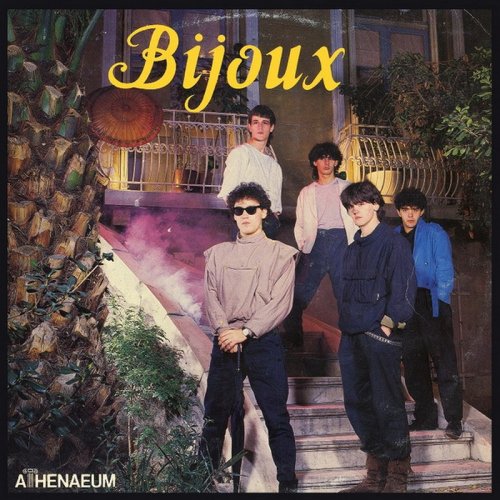Free: 3 Albums - Mini LP PT-SHM Universal Music Japan 2014
Lossless Galaxy Release Free: 3 Albums Mini LP PT-SHM Universal Music Japan 2014 Performer: Free Albums: 1968 Tons Of Sobs ● 1969 Free 1971 Free Live! (Mini LP Platinum SHM-CD Universal Music Japan 2014) Info: Islands Records / Universal Music Japan Cardboard Sleeve (Mini LP) / Platinum SHM-CD / Limited Release Catalog PT-SHM: UICY-40077 / UICY-40086 / UICY-40078 Made in Japan Dynamic Range: 12 / 11 / 13 Genre / Style: Rock / Blues Rock / Blues Released Year: 2014 Format: FLAC / Level 8 (img +
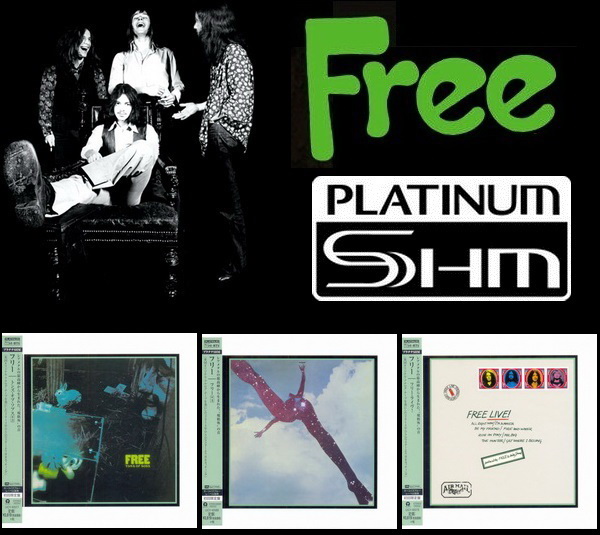
Free: 3 Albums - Mini LP PT-SHM Universal Music Japan 2014
Lossless Galaxy Release Free: 3 Albums Mini LP PT-SHM Universal Music Japan 2014 Performer: Free Albums: 1968 Tons Of Sobs ● 1969 Free 1971 Free Live! (Mini LP Platinum SHM-CD Universal Music Japan 2014) Info: Islands Records / Universal Music Japan Cardboard Sleeve (Mini LP) / Platinum SHM-CD / Limited Release Catalog PT-SHM: UICY-40077 / UICY-40086 / UICY-40078 Made in Japan Dynamic Range: 12 / 11 / 13 Genre / Style: Rock / Blues Rock / Blues Released Year: 2014 Format: FLAC / Level 8 (img +
05 10, 2025
Dave Brubeck - Milestones of a Jazz Legend (2018) 10CD

Dave Brubeck - Milestones of a Jazz Legend (2018) 10CD
Artist: Dave Brubeck Title Of Album: Milestones of a Jazz Legend Year Of Release: 2018 Label (Catalog#) :The Intense Media600484 Country:: USA Genre: Cool Jazz Quality: FLAC (tracks+cue,log) Bitrate: Lossless Time: --------- Full Size: 3.15Gb(+3%)(covers,png) Info: wiki Upload: xfile.cloud
04 10, 2025
Overkill - The Atlantic Years - 1986 - 1994 (2021)
Band: Overkill Country: United States Album: The Atlantic Years - 1986 - 1994 (Box-set) Genre: Thrash Metal, Heavy, Groove Publisher: Atlantic, BMG (538677070) Quality: FLAC (image. cue. log. full scans) Size: 2.24 Gb Sharing: X-files
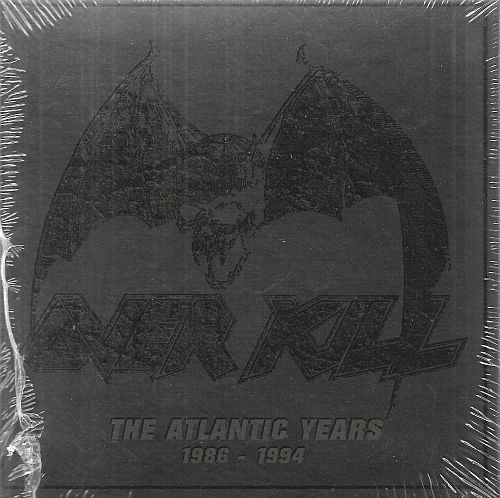
Overkill - The Atlantic Years - 1986 - 1994 (2021)
Band: Overkill Country: United States Album: The Atlantic Years - 1986 - 1994 (Box-set) Genre: Thrash Metal, Heavy, Groove Publisher: Atlantic, BMG (538677070) Quality: FLAC (image. cue. log. full scans) Size: 2.24 Gb Sharing: X-files
04 10, 2025
Жанры
Lossless Galaxy Release
Русская музыка
--Поп
--Рок
--Панк
--Альтернатива
--Металл
--Рэп, Хип-Хоп, R'n'B
--Джаз и Блюз
--Фолк
--Шансон, Авторская песня
--СССР
Зарубежная музыка
--Pop
--Rock
--Hard Rock
--Progressive & Art-Rock
--Pop-Rock & Soft Rock
--Instrumental Rock
--Heavy, Traditional, Industrial Metal
--Power, Gothic, Sympho Metal
--Thrash, Speed, Groove, Modern Metal
--Death, Melodic Death, Doom, Dark Metal
--Black, Pagan, Folk, Viking Metal
--Alternative
--Punk
--Disco, Eurodance
--Rap, Hip Hop, R'n'B
--Reggae, Ska, Dub
--Jazz, Blues, Soul
--Folk, Country, Ethnic
--Electronic, Ambient, New Wave
--House, Techno, Trance
Другие жанры
--New Age, Relax, Meditative & Flamenco
--Chillout, Lounge, Downtempo, Trip-Hop
--Drum & Bass, Jungle, Breakbeat, IDM
--Classical / Классическая музыка
--Soundtrack
--Музыкальные сказки
Vinyl Rip
HI-Res / DVD-Audio / DTS
--SACD
--DSD
--DVD-Audio
Сборники Lossless-Galaxy
Альбомы 2022
Альбомы 2023
Альбомы 2024
Теги
1st Press 2022 2023 2024 2025 70... AOR Black Metal Blues Blues Rock Bootleg Series Classic Rock Death Metal Discography Exclusive for Lossless-Galaxy Folk Rock Fusion Hard Rock Heavy Metal Hi-Res Japanese Edition Jazz Jazz Rock lossless Melodic Death Metal Melodic Rock Modern Electric Blues Pop Pop Rock Power Metal Prog Rock Progressive Metal Progressive Rock Psych Rock Psychedelic Rock Rock SACD Symphonic Metal Thrash Metal Дискографии от KoGGaN
Архивы
Опрос
В каком формате хотели бы видеть релизы на сайте ?
 Автор: LeddZepp, 29 августа 2022, Комментариев: 0, Просмотров: 681
Автор: LeddZepp, 29 августа 2022, Комментариев: 0, Просмотров: 681Vangelis - Mask (1985)
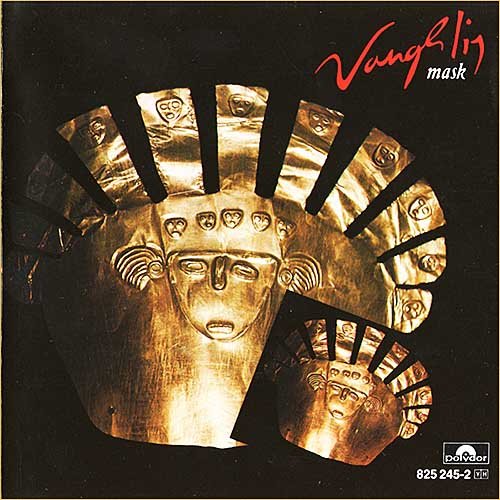
Year: 1985, Recorded: London, 1984 (CD 19??)
Label: Polydor Records (Germany), 825 245-2
Style: Electronic, Modern Classical
Country: Agria, Greece (29 March 1943 - 17 May 2022)
Time: 43:35
Format: Flac Tracks 16/44,1 kHz
Size: 219 Mb
17 мая (2022) наш грешный мир покинул потрясающий композитор и великолепный музыкант Вангелис - человек, подаривший нам свой собственный удивительный мир, мир тонких мелодий, будто бы с другой планеты, которые можно переслушивать бесконечно.
Жизнь греческого композитора это целая повесть о простом, но одарённом мальчишке из провинции, который взошёл на музыкальный Олимп и вписал своё имя в историю мировой музыки.
Вангелис... Кто он? Гениальный композитор? Или может быть обычная поп-звезда своего времени, которая прославилась супер-зажигательным хитом? Чем же..? Ааа... наверняка он богатенький сынок, который добился успеха благодаря связям и родителям...? Разве нет...!? Тогда, как человек из не самой процветающей страны стал успешным композитором и самое главное, благодаря чему?
Легенда гласит, что он не писал и не читал партитуры: музыка рождалась от его хорошего слуха, воспроизводя её по воспоминаниям и фантазиям, и более того, он научился сочинять музыку до того, как заговорил. Широкая публика обычно знает о музыке Вангелиса по одной из его потрясающих мелодий из фильмов, таких как "Огненные колесницы", "Бегущий по лезвию", "1492: Завоевание рая" и "Александр", а может быть даже по рекламному ролику стиральной машины. Однако его творения выходят за все мыслимые и не мыслимые границы, находя своё место не только на Земле, но и на просторах космоса.
Его взгляд на музыку мистичен и он всегда считал себя её слугой. Он сочинял каждый день, чтобы служить музыке, а не искать успеха на музыкальном поприще. Он не просто сочинял, он писал музыкальные законы... превращая хаос в гармонию, которая движет всеми нами и самой жизнью...
Так кто же он, этот загадочный греческий композитор...? Обо всём по порядку...
А начать хотелось бы с его слов: "Музыка существовала, до того, как мы появились на свет"
(Полная версия: dtf.ru/music/1212581-epichnye-ody-i-zvuki-dalekogo-kosmosa-kakoy-eshche-nam-zapomnilas-muzyka-vangelisa?ysclid=l7eu6nv4wz257790136)
01. Movement 1 (10:24)
02. Movement 2 (03:26)
03. Movement 3 (06:44)
04. Movement 4 (08:46)
05. Movement 5 (10:04)
06. Movement 6 (04:07)



При желании можно посмотреть все мои публикации на сайте. Приятного прослушивания. Жмём и смотрим (Click to see all of my posts)!
Внимание! У Вас нет прав для просмотра скрытого текста.
Похожие новости:
Комментарии отсутствуют
Добавить комментарий!
Информация
Посетители, находящиеся в группе Гости, не могут оставлять комментарии к данной публикации.

